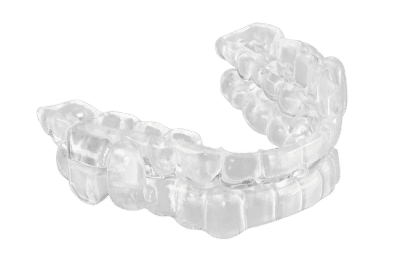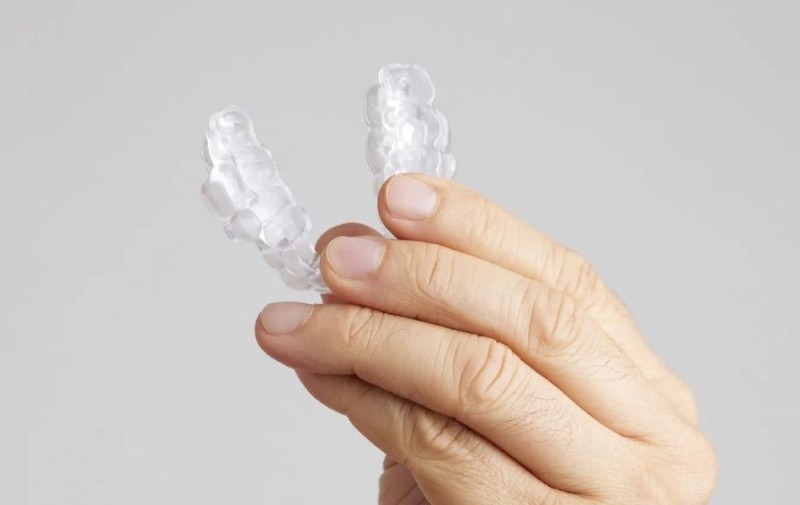 Our founder and sleep apnea expert, Dr. Jeffrey Haddad, DDS, has developed advanced techniques to treat the root cause of these conditions using precision diagnostics and custom-designed oral appliances. With our innovative Sleep Apnea Precision Approach™, we provide personalized, comfortable, and effective treatment that addresses both TMJ disorders and sleep apnea simultaneously.
Our founder and sleep apnea expert, Dr. Jeffrey Haddad, DDS, has developed advanced techniques to treat the root cause of these conditions using precision diagnostics and custom-designed oral appliances. With our innovative Sleep Apnea Precision Approach™, we provide personalized, comfortable, and effective treatment that addresses both TMJ disorders and sleep apnea simultaneously.
Why This Connection Matters for Your Health
Your jaw, airway, and muscles are interconnected. When one system is out of balance, the others are affected. Many patients struggling with poor sleep, chronic headaches, or jaw pain don’t realize these issues may share the same underlying cause—an imbalance between jaw position and airway function.
Addressing both conditions together can dramatically improve quality of life, helping you sleep better, breathe easier, and live pain-free.
What Is TMJ Disorder?
The temporomandibular joint (TMJ) connects your jaw to the rest of your skull. It allows you to speak, chew, and yawn comfortably. When this joint becomes strained or misaligned, it can lead to pain and dysfunction.
Common Signs You Might Notice
- Jaw pain, clicking, or popping when opening or closing the mouth
- Morning headaches or facial tenderness
- Limited jaw movement or locking
- Ear fullness, ringing, or discomfort
- Clenching or grinding (bruxism), often during sleep

TMJ disorders can stem from several factors, including bite misalignment, chronic stress, injury, or airway-related issues. Over time, these problems can lead to muscular fatigue and joint inflammation, especially when the jaw is under constant tension.
What Is Sleep Apnea?
Sleep apnea is a condition in which breathing repeatedly stops and starts during sleep, often due to the collapse of the airway. The most common form—obstructive sleep apnea (OSA)—occurs when the soft tissues in the throat or an improper jaw position block airflow.
Typical Symptoms to Watch For
- Loud snoring or gasping for air during sleep
- Feeling exhausted even after a full night’s rest
- Morning headaches, dry mouth, or sore throat
- Difficulty focusing during the day or irritability
When left untreated, sleep apnea can contribute to high blood pressure, cardiovascular disease, and chronic fatigue. Many patients are unaware that jaw positioning plays a key role in maintaining an open airway.
How TMJ Issues and Sleep Apnea Influence Each Other
TMJ disorders and sleep apnea are deeply connected through the relationship between jaw position, muscles, and airway space.
Jaw Position and Airway Size
When the lower jaw sits too far back, it can reduce space in the upper airway, making it more likely to narrow or collapse during sleep. Chronic mouth breathing or nasal obstruction may also cause the jaw to shift backward, which can worsen both TMJ and airway restriction over time.
Nighttime Clenching as a “Rescue” Response
During apneic events (when breathing pauses), the brain sends signals to the jaw muscles to tighten and stabilize the airway. This instinctive clenching helps the body breathe—but at a cost. Repeated overnight tension can cause damage to the jaw joints, leading to pain, stiffness, and fatigue.
By understanding how the jaw and airway interact, we can design treatment that supports both systems instead of forcing them to work against each other.
Why Single-Focus Treatment Can Fall Short
Treating only TMJ or only sleep apnea often provides temporary or incomplete relief because the two conditions reinforce one another.
Examples of Mismatched Therapy
- A standard bite splint designed for TMJ may inadvertently push the jaw backward, thereby reducing airway space and exacerbating sleep apnea symptoms.
- A generic sleep apnea appliance that doesn’t consider jaw joint position can increase strain, leading to jaw pain or muscle fatigue.
- Even CPAP masks can sometimes place pressure on the jaw, contributing to discomfort or bite changes.
This is why Dr. Haddad emphasizes precision diagnostics and custom treatment plans designed to balance airway function and joint comfort.
The Sleep Apnea Precision Approach™
Our Sleep Apnea Precision Approach™ provides a comprehensive, data-driven path to treat sleep apnea and TMJ disorders together. This innovative method focuses on achieving precise jaw alignment, maintaining airway stability, and promoting long-term comfort.
Precision Diagnostics That Personalize Therapy
We begin with advanced testing to understand how your airway, muscles, and jaw function together. Using digital scans, 3D imaging, and computerized jaw tracking, we evaluate:
- Airway size and shape
- Jaw joint position and muscle activity
- Tongue and soft-tissue dynamics
These findings enable us to create a truly customized treatment plan tailored to your exact anatomy and needs.
A TMJ-Friendly Oral Appliance
Many patients benefit from a precision-fit oral appliance that gently repositions the jaw to keep the airway open while relieving TMJ stress. Unlike standard sleep appliances, ours are designed to maintain joint balance and muscle relaxation throughout the night. This makes them a comfortable and effective CPAP alternative for many patients.
Learn more about our TMJ-friendly sleep apnea treatment and how it helps improve both breathing and jaw comfort.

Benefits of Treating TMJ and Sleep Apnea Together
When treatment supports both the airway and the jaw, results are more consistent and lasting. Patients frequently experience life-changing improvements in energy, comfort, and overall well-being.
What Patients Commonly Report
- Deeper, more restorative sleep
- Reduced jaw pain, tension, and morning headaches
- Fewer clenching or grinding episodes at night
- Better concentration, mood, and daytime energy
- Balanced bite and improved long-term jaw stability
Addressing both conditions together ensures that one treatment doesn’t undo the progress of the other—helping you achieve total wellness.
What to Expect With Our Integrated Care
Every treatment plan at the Michigan Center for TMJ & Sleep Wellness begins with a detailed understanding of your health, lifestyle, and goals.
Step 1 — Comprehensive Evaluation
During your initial visit, we conduct an in-depth consultation that includes advanced imaging and airway assessments. We’ll discuss your sleep patterns, symptoms, and medical history to determine how TMJ and sleep apnea may be connected in your case.
Step 2 — Personalized Plan
Dr. Haddad designs a plan that may include a precision oral appliance, gentle TMJ therapy, or collaboration with your medical team for sleep studies or additional support.
Step 3 — Guided Therapy and Follow-Ups
Once your appliance is ready, we carefully monitor your progress. Regular follow-ups allow us to fine-tune your treatment for optimal comfort and effectiveness. Most patients notice improvements in sleep quality, reduced pain, and increased energy within weeks.
Is This Right for You?
If you snore, wake up tired, or experience jaw pain or clenching, your TMJ and airway may both require attention. Integrated care can provide long-term relief and protect your overall health.
Quick Self-Check
- Do you clench or grind your teeth at night?
- Do you wake with headaches, jaw soreness, or stiffness?
- Has CPAP therapy been uncomfortable or ineffective for you?
If you answered “yes” to any of these, you may benefit from our precision approach to TMJ and sleep apnea.
 Meet Dr. Jeffrey Haddad
Meet Dr. Jeffrey Haddad
Dr. Jeffrey S. Haddad, DDS, is the founder of the Michigan Center for TMJ & Sleep Wellness. He has dedicated his career to helping patients find relief from chronic jaw pain and sleep-disordered breathing using advanced diagnostic tools and precision oral appliance therapy. His commitment to innovation and patient comfort drives everything we do.
Ready for Better Sleep and a Calmer Jaw?
If you’re tired of restless nights and persistent jaw discomfort, there’s a path forward. The Sleep Apnea Precision Approach™ offers a comfortable, effective, and non-invasive solution that supports both your breathing and your bite.
Call us today at (248) 480-0085 to regain comfort, balance, and restful sleep with the Michigan Center for TMJ & Sleep Wellness.


